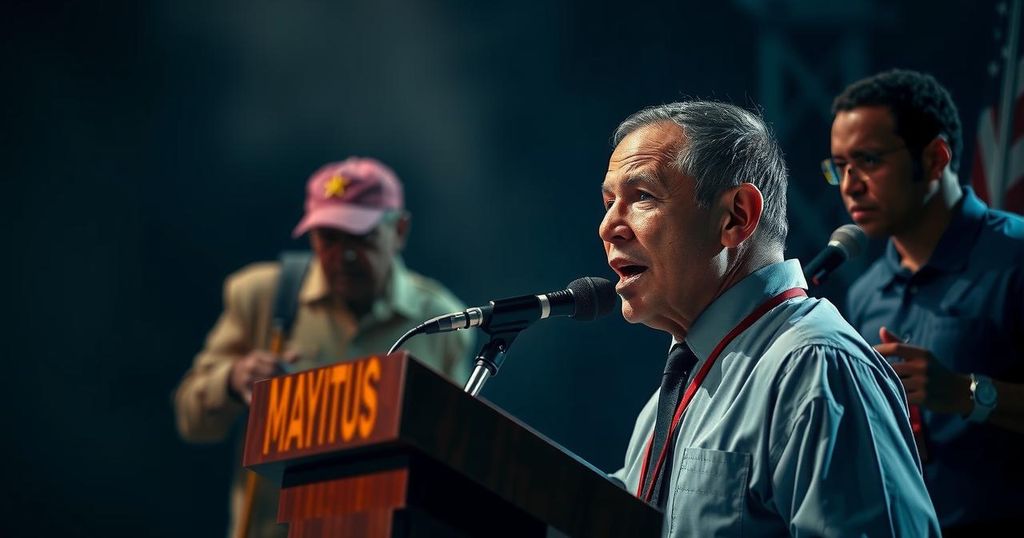Mauritius Elections: Wiretapping Scandal and Its Impact on Democracy
Mauritius is set to hold national elections amid a wiretapping scandal involving alleged government misdeeds. As one million voters prepare to vote, the political environment is charged with accusations of surveillance and attempts at suppressing information. The election will be influenced by key issues such as high living costs and corruption, with major parties vying for the public’s support.
Mauritius, an island nation in the Indian Ocean, is holding its national elections amid serious allegations involving wiretapping by government officials. Over one million voters will participate in this election, marking the 12th since the country gained independence in 1968. Traditionally recognized for its vibrant democracy, the political atmosphere has turned tense due to leaked audio recordings suggesting illicit surveillance and political manipulation. Authorities imposed a temporary ban on social media, which they later lifted following public outcry; these events have significantly influenced the political climate as various parties prepare for the elections. The wiretapping scandal centers on audio recordings allegedly exposing conversations among high-ranking officials regarding opposition members and civil society figures. Prime Minister Pravind Kumar Jugnauth has called for a judicial investigation into the matter, claiming some recordings may have been manipulated. The opposition accuses the government of attempting to suppress damaging information before the elections. Voting in Mauritius involves electing representatives to the National Assembly from various political parties, employing a mixed electoral system that includes direct elections and additional seats to account for ethnic representation. Amidst the changing political landscape, three main parties dominate: Jugnauth’s MSM, the Labour Party, and the Mauritian Militant Movement, which may form alliances to secure a parliamentary majority.
Mauritius has a reputation for robust democracy, which is now challenged due to the serious wiretapping allegations against government officials. These accusations reveal a potential erosion of civil liberties in the nation. The political landscape is deeply intertwined with issues such as high living costs, rising crime rates, and public concerns regarding corruption. The recent social media ban, imposed by the government ostensibly for national security, has raised concerns regarding censorship and civil rights, drawing strong reactions from opposition parties and activists. This election holds the potential to reshape the political narrative in Mauritius amid these controversies, making it crucial for voters to consider proposed solutions to pressing societal issues.
In conclusion, the upcoming elections in Mauritius are not only pivotal for the future political landscape but also a litmus test for the nation’s democratic integrity. The intertwined issues of wiretapping, social media censorship, and socio-economic challenges create a charged atmosphere for voters. With allegations of corruption and crises in civil rights at the forefront, the election will likely determine the future direction of governance and the extent to which the Mauritian people can expect accountability from their leaders. As the citizens prepare to cast their votes, the outcomes will reflect their responses to the pressing challenges that the nation faces today.
Original Source: www.aljazeera.com




Post Comment